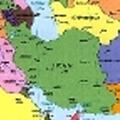United Nations Secretary General Ban Ki Moon has issued a report to the U.N. General Assembly on human rights conditions in Iran. The report covers developments since June 2008, and focuses attention on what occurred in Iran after the presidential election in June 2009.
Mr. Ban said over the past 15 months there have been negative developments in the area of civil and political rights in Iran. There was an increase in human rights violations targeting women, university students, teachers, workers and other activist groups, particularly in the aftermath of the election. Members of ethnic and minority groups faced harassment, violence, and, in some cases, persecution. Independent media was restricted, with publications suspended and websites blocked.
Secretary General Ban said that following the massive demonstrations that took place after the June election, he was "deeply troubled" by reports of excessive use of force, arbitrary arrest, detention and possible torture of opposition activists. He highlighted the killing of Neda Agha Soltan, a young woman who was shot in the chest and died in the street during a demonstration in Tehran. According to his report, at least 19 other people were killed and hundreds seriously wounded in clashes with security forces.
The United States welcomes the UN Secretary General's report on the human rights situation in Iran. As President Barack Obama has said, the U.S. is committed to the universal principles of human rights, including freedom of expression, freedom of religion, and freedom of assembly. And the U.S. shares the international community's deep concern about the human rights situation in Iran. When Mr. Obama responded to the news that he was to be the recipient of the Nobel Peace Prize, he said, "We can't accept a world in which more people are denied opportunity and dignity that all people yearn for." The award, he said, "must be shared with everyone who strives for justice and dignity": "For the young woman who marches silently on behalf of her right to be heard even in the face of beatings and bullets; for the leader imprisoned in her own home because she refuses to abandon her commitment to democracy ... for all those men and women across the world who sacrifice their safety and their freedom and sometime their lives for the cause of peace." "That has always been the cause of America," said President Obama.

